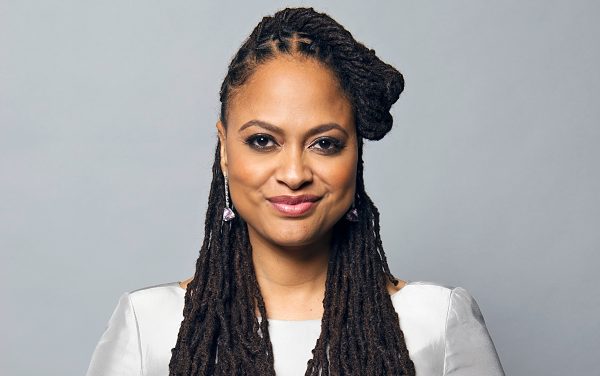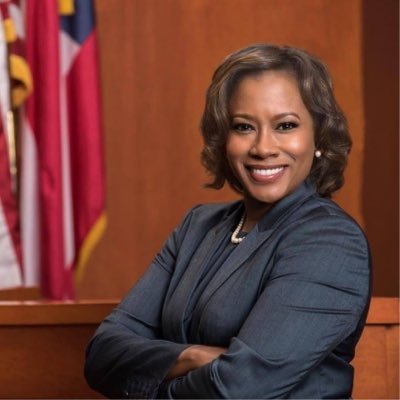on
When asked by a fan on Twitter when Ava DuVernay would be wearing the director’s hat again for the hit series “Queen Sugar” the screenwriter revealed that she will not be directing episodes of the OWN series “for a while” in an attempt to make space for other women who wish to step into the role and take lead.

“When I direct, it takes an episode away from a woman who could use it as a stepping stone,” Duvernay wrote on her stance on creating room for more female directors as inequality continues to persist in the male-dominated film industry. “So, not for a while. We want more in the tribe.”
In 2017, the Center for the Study of Women in Television & Film at San Diego State University released a study that revealed that the number of female directors has declined from 2015, with only 7 percent of the 250 top grossing films of 2016 being directed by women. This was a 2 percent decline from the previous year. The Center also found that women only made up 26 percent of television creators in roles like directing, writing, producing, and more; this is particularly bad because the same study also found that shows with at least one female creator had “higher percentages of female characters overall.” Essentially, more women behind the camera meant more women, written with nuance and complexity, in front of it.
Duvernay’s radical, post-diversity acts assume that perhaps the systems in place to promote diversity and inclusion in the workplace have atrophied beyond what’s useful; and that – all things being equal – there are always ways to take matters into your own hands – to groom talent and handpick your replacements to ensure continuity of legacy … or a seat at the table.
 The late Dr. Brenda Watts Jones was the first African-American president of Atlanta Technical College and she intentionally spoke life into who would become her successor – Dr. Alvetta Peterman Thomas. She was deliberate and intentional – specifically telling Thomas who was vice president of academic affairs prior to 2008 that she “would be president.” And the grooming ensued.
The late Dr. Brenda Watts Jones was the first African-American president of Atlanta Technical College and she intentionally spoke life into who would become her successor – Dr. Alvetta Peterman Thomas. She was deliberate and intentional – specifically telling Thomas who was vice president of academic affairs prior to 2008 that she “would be president.” And the grooming ensued.
But not without groundwork – dissertation level preparation.
Thomas’ doctoral dissertation research was a qualitative case study of African-American women executive leaders in two-year colleges. Five African-American women directors of instruction from a two-year college system in the southeastern United States were interviewed to examine factors that contributed to their career succession experiences.
Of the three conclusions from the study findings, Thomas found that as an appendage to racism and sexism that’s evident throughout every facet of the career succession experience, said career succession experiences were leveraged by institutional and professional factors such as supervisory and institutional support for education and career development, mentoring, and restricted network opportunities. The impending leadership crisis presented an excellent opportunity to recruit and train the untapped human resource, African-American women, for future two-year college leadership.
“Two-year colleges have historically catered to diverse student populations. However, they have fallen short in promoting African Americans to executive leadership positions. Now is the time for two-year colleges to fully embrace diversity,” Thomas stated. “They should: 1) engage in open dialogue to bring manifestations of institutional racism and sexism to the forefront; 2) develop formal and informal programs to attract more African-American women for two-year college leadership opportunities and to support current African-American women executive leaders; 3) critically examine their recruitment and promotion procedures to eliminate practices that limit consideration of African-American women; and 4) make a concerted effort to encourage leadership opportunities to African Americans beyond urban colleges with large African-American student populations.”
 Dr. Victoria Seals, who stepped into the role as president of Atlanta Technical College when Thomas became president of Southern Crescent Technical College added to the literature on women in leadership and women’s career development. Her dissertation work identified and described the dimensions of support necessary for women to be successful in attaining executive leadership positions in community and technical colleges. Of the components perceived as influential in the career development of women in community and technical college leadership: guidance by senior leadership, by far, top billed.
Dr. Victoria Seals, who stepped into the role as president of Atlanta Technical College when Thomas became president of Southern Crescent Technical College added to the literature on women in leadership and women’s career development. Her dissertation work identified and described the dimensions of support necessary for women to be successful in attaining executive leadership positions in community and technical colleges. Of the components perceived as influential in the career development of women in community and technical college leadership: guidance by senior leadership, by far, top billed.
The quality of the successor is just as important as the foresight, preparation and definitions of success of the predecessor.
First the question, ‘What does it mean to be a successful company or organizational head?’ must be asked. When you consider the profile of a “successful company” you typically think of financial performance, annual growth, valuation, acquisitions, public perception and profitability. In order to have a complete picture of what it means to be successful CEO, you cannot leave out your successor. You could have done an excellent job as CEO, but if you leave and the company tanks, your tenure was not successful. The point of successful and intentional succession planning is to create systems and company cultures to outlast you. A very successful transition to a new leader has to be a part of the CEO’s thinking: Good onboarding, great tenure, strong successor.
Start by seeing who is ready within the organization and begin putting them in positions of impact and responsibility. This doesn’t just apply for internal colleagues. If the person isn’t already an employee, bring them in and get them working. Make them a senior level vice president, or bring them in on the board and get the board comfortable with your heir apparent.
Face time with the board of directors or an advisory body of consequence goes towards the end goal: To get someone, other than you, to organically come to the conclusion that your “pick” could be your successor without you necessarily spelling it out.
Unless it is a volatile ouster, the timeframe of the transition is dependent upon the company. A lengthy, but open and transparent process that floats conversations of impending transitions early quells uncertainty and insecurity.
For example, long before he died, Citizens Trust Bank’s longtime president James Young was sure to handpick and groom his successor – Cynthia Day. Day started working with Young to succeed him in 2005 when she became executive vice president of management services. Under Young’s guidance, she worked on all aspects of the bank including new product development and an acquisition strategy. Seven years later, in February 2012, she was named president.
In other cases, the power of intentional suggestion is the catalyst for grooming.
 When former DeKalb County Solicitor General and newly elected District Attorney Sherry Boston came out of law school, she went to work for a small firm comprised of all white males. “After a few years, I definitely was looking and craving to find someone that I could see myself in and in particular at that time, I was wanting to work with another female lawyer that was in my field. I was lucky enough to really be mentored by Brenda Joy “B.J.” Bernstein, who was doing and is doing amazing work in the area of criminal law and I was inspired because doing criminal defense was very much a ‘Boys Club’ as are many areas of law, but that was the area I was in.”
When former DeKalb County Solicitor General and newly elected District Attorney Sherry Boston came out of law school, she went to work for a small firm comprised of all white males. “After a few years, I definitely was looking and craving to find someone that I could see myself in and in particular at that time, I was wanting to work with another female lawyer that was in my field. I was lucky enough to really be mentored by Brenda Joy “B.J.” Bernstein, who was doing and is doing amazing work in the area of criminal law and I was inspired because doing criminal defense was very much a ‘Boys Club’ as are many areas of law, but that was the area I was in.”
The push that she needed to continue came from Judge Shawn Ellen LaGrua, current Superior Court Judge in Fulton County and former Solicitor General for DeKalb County.
“I can say it unequivocally, and I said it in my swearing in speech, I would not be district attorney were it not for her. Because she was the first person to really tell me, and encourage me, not just tell me, but encourage me, to seek the solicitor general position,” says Boston. “LaGrua had been solicitor general in DeKalb County before becoming a superior court judge in Fulton County, so she was intimately familiar with what the role was and she knew me. She was the first person to say, ‘you know what Sherry, I know you think this is crazy, but I think this role is a really good fit for you. I think you’ll love it and I think you’d be great at it.’ That put me on this trajectory and she was the first person, pretty early on in my tenure as solicitor general to say, ‘you’re not done, I believe you’re going to be the next DA of DeKalb County.’ It was her mentorship of me that allowed me to see an opportunity that otherwise I probably had blinders on to, because we all need encouragement. And we all need someone outside of ourselves to sometimes see what we cannot see … that we have the strength to do and passion to do when maybe you’re thinking about something else and don’t really see the value you can bring to another position. So I credit her with really seeing that for me, and continuing to talk to me about pursuing the position.”
And though she has not picked her successor yet having only been in the role for eight months to date, she is inspired by the pipeline of young lawyers she is developing around her.
Indeed, there are risks and perils to naming a successor outrightly – such as the risk of a demotivated workforce when the chance of upward mobility is removed – if even temporarily. In these cases, Armando Iannuzzi, partner at Kestenberg Rabinowicz Partners LLP says to over communicate with existing employees. “Explain the plan in detail to your staff and provide a timeline as to when their new boss might assume control of the business. Reinforce the message that the search will be conducted in an objective manner. If you’re not willing to consider current employees, be prepared to explain why,” he says. “Remember that communication not only helps manage employee expectations and smooths potentially hurt feelings, but can also stem potential staff turnover if they feel the process isn’t being managed properly or fear the selection of a new CEO for whom they might not want to work.”
Another potential obstacle – revealing to your respective industry your team MVP or your deep bench creates easy targets for competitive talent pool exposure and poaching.
But sometimes, you wind up the winner.
Case in point: Julie Dash who became the first African-American woman to have a wide theatrical release of her feature film when she broke through racial and gender boundaries 26 years ago with her Sundance award-winning film “Daughters of the Dust” joined Spelman College this fall as a distinguished professor of fine arts; and too, joins Duvernay as one of the growing cohort of directors she has tapped to direct “Queen Sugar” this season as her replacements.
Everybody wins. AT
Join our email list to stay connected.







You must be logged in to post a comment Login